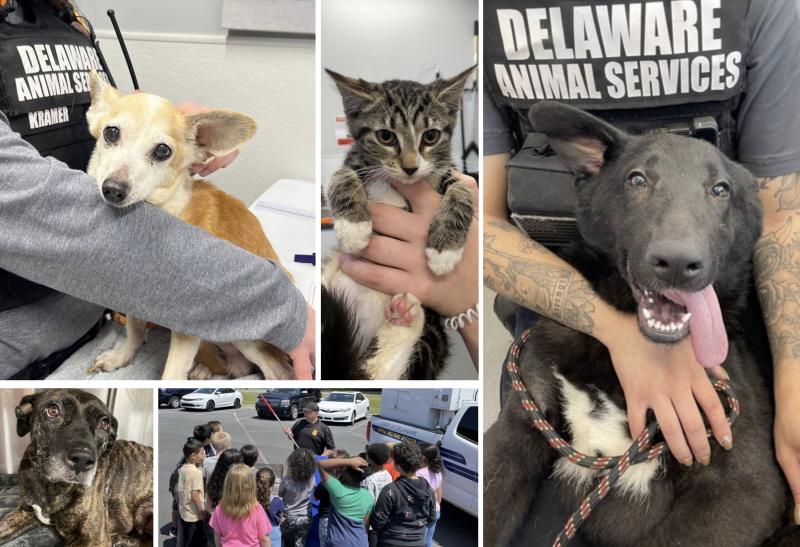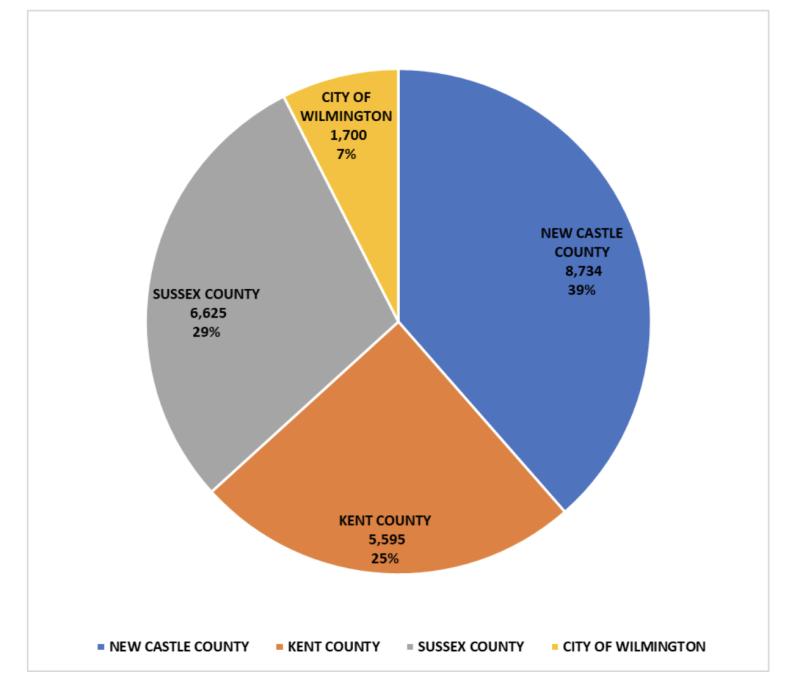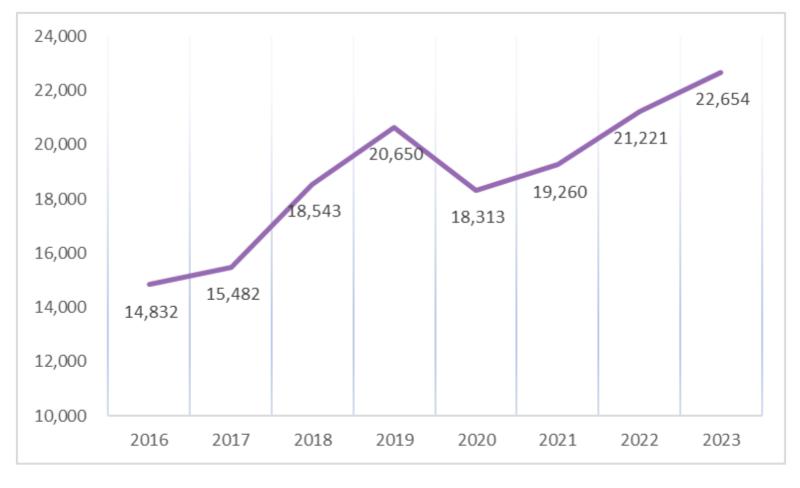Sussex dog control contract increases
Sussex County will pay $158,000 more this year for its dog-control contract with the Delaware Office of Animal Welfare for a total of $1 million, with a 3% increase each year for the three years of the contract.
The state took over dog control in 2016 from the counties and established a pricing structure formula based on population. Sussex County's population increased from 216,000 in 2015 to 234,000 in 2019 and then to 255,956 in 2023.
Sussex County Council approved the new contract during its March 19 meeting.
Director Christina Motoyoshi said the office is facing a more than $598,000 deficit due increases in salaries, vehicles and shelter costs. The state’s population has grown more than 8%; calls for service and animal intake are up 23%, she said.
Calls in Sussex
In 2023, animal control officers responded to more than 6,600 calls in Sussex for service out of more than 22,000 calls throughout the state.
Among the calls in Sussex were 4,171 for animal control, 1,005 for rabies control, 334 for police agency assists and 204 for animal cruelty and animal fighting.
The office investigated 68 dangerous dog cases, issued 1,952 citations for dog control and rabies violations, and returned 1,677 dogs to their owners.
What the office does
The office provides a variety of services, including picking up stray dogs, dealing with dangerous dogs, housing and care violations, welfare checks, animal cruelty cases, cats in danger, police agency assists and emergency response.
The office provides training and certification for officers, provides care for pets brought to Red Cross shelters during emergencies, administers a lost-and-found pet registration, provides conflict resolution and interacts with constituents through community outreach programs.
The Animal Welfare Law Enforcement Unit, with law enforcement and animal control training, answers 1,500 calls per month throughout the state.
Officers answer calls from 9 a.m. to 7 p.m. Monday through Friday, and from 10 a.m. to 6 p.m. on weekends.
Contract with Brandywine
The office contracts with Brandywine Valley SPCA to provide shelter services for all stray, homeless and abused dogs, as well as medical services.
Brandywine also provides low-cost spay and neuter clinics, vaccine and microchip clinics, pet food banks and grants to keep pets with their owners.
Brandywine, which operates no-kill shelters, had a 90% release rate in 2023 with an average length of stay of 18 days for dogs and 28 days for cats. It operates two shelters in Sussex County: one on Route 113 south of Georgetown, and a rescue center on Shingle Point Road near Georgetown. In 2023, the shelters handled more than 3,500 dogs and 959 cats. The total of 4,547 live intakes is a 29% increase from the previous year.
For more information, call 302-255-4646 or go to animalservices.delaware.gov. The website includes links to organizations that deal with injured wildlife.
What the office doesn’t do: barking dogs, stray cats, livestock, sick or injured animals and wildlife. It also does not accept dogs from an owner who wants to surrender their animal.
Data from 2023
22,654 calls for service statewide
6,625 calls in Sussex County
846 cruelty cases investigated statewide
204 cruelty cases in Sussex County
Rabies control cases – 1,005, Sussex County
Dangerous dog cases – 68, Sussex County
At the Brandywine SPCA shelters in Sussex
90% live release rate
1,677 lost dogs returned to owners
18 days, average stay for dogs
28 days, average stay for cats*
Although the Office of Animal Welfare does not answer calls related to cats, the SPCA does.























































